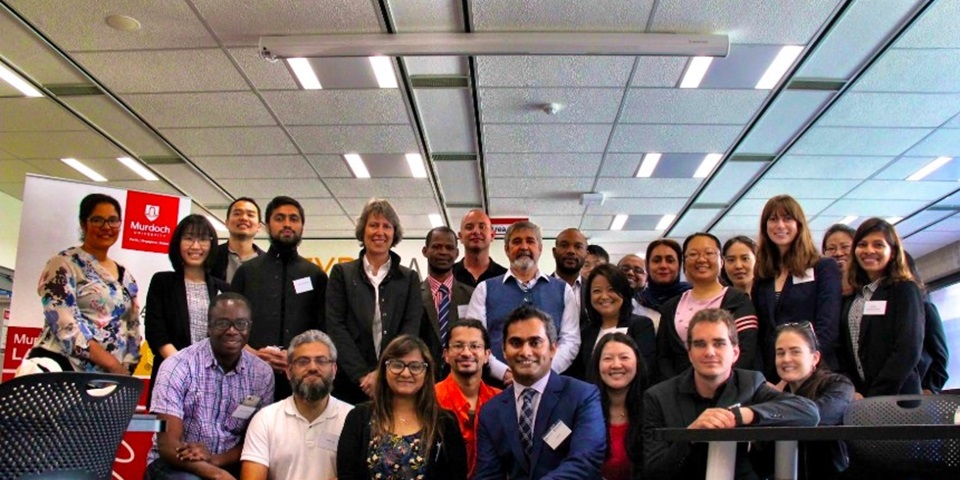News
Workshop highlights the value of science diplomacy

The evolution of science diplomacy and its role in creating pathways for policy action was the focus of a science policy workshop held recently at Murdoch University.
Organised by Murdoch University’s Postgraduate Student Association (MUPSA), the workshop featured perspectives, experiences, and research from individuals who have worked at the intersection of science and international relations.
Murdoch PhD scholar and career diplomat, Muhammed Adeel who facilitated the 30–person workshop primarily for early career researchers (ECRs), said that science had the ability to build partnerships between countries – partnerships that can be sustained regardless of the political winds.
“Cross-disciplinary and cross-border collaboration is what’s needed for meaningful progress to be made on global challenges,” he said.
“Now, our planet is facing several global challenges - to its atmosphere, to its resources, to its inhabitants.
“Prevailing problems such as climate change, over-population, disease, and food, water, energy and cyber security require worldwide collaboration to find sustainable solutions.
“We need scientists and foreign policy professionals to work together and take advantage of the ways science can inform and influence diplomacy, and vice-versa.”
Workshop participants heard from WA State Agricultural and Biotechnology Centre Director Professor Michael Jones and the Centre for Entrepreneurial Research and Innovation CEO Dr Carolyn Williams who talked about science diplomacy in their respective roles.
Professor Jones highlighted the need for science diplomacy in relation to international trade in foods and the need for harmonisation of regulations relating to products of new breeding technologies. He emphasised the need for evidence-based regulations and the avoidance of non-tariff trade barriers.
Science and Technology Australia Projects and Policy Officer Peter Derbyshire spoke about the role of policy submissions and useful tools for ECRs to stay updated on policy aspects related to their research.
Curtin’s Professor Steven Tingay provided an insight on how he helped negotiate international agreements for the Square Kilometre Array, one of Australia’s major science diplomacy projects.
The final session of the workshop provided an opportunity for attendees to participate in a simulated science diplomacy scenario to resolve and negotiate an international agreement.
This workshop is the first of a series of science policy workshops and lectures that MUPSA will host.